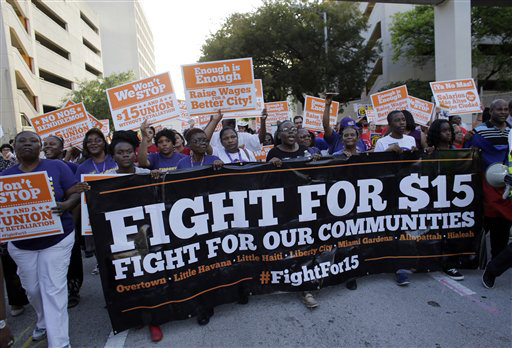Georgetown University, Learning From Its Sins - The New York Times
by David J. Collins
The Jesuit cemetery in St. Inigoes, Md., used to be surrounded by tobacco fields. Over the course of roughly 150 years, those fields were worked by hundreds of slaves owned by the Jesuits. In June, I sat in that cemetery, as a priest and a history professor at Georgetown University, with 16 Jesuit seminarians. We discussed what had happened there in 1838, when several hundred men, women and children were rounded up by the churchmen and their hired agents and transported first by wagon, then by ship to plantations in Louisiana.
I tell this history to seminarians every year. Both as historian and as priest, I am convinced that the past matters in the present. That is one reason I did not hesitate to lead the working group on slavery, memory and reconciliation that has as its goals the recovery of a neglected history and the pursuit of present-day reconciliation at Georgetown. The group’s recommendations for how best to acknowledge and recognize the school’s historical relationship with slavery will be released on Thursday.
The 1838 sale is the most harrowing story I tell the seminarians. But it is hardly the only such story. The visit to the plantations is a chance to teach them that the Jesuits in colonial North America and the early United States owned more than 1,000 slaves on Maryland plantations, as well as in the Midwest and Deep South. Few of the slaves were emancipated until the law required it.
This slave labor generated revenue for Catholic pastoral and educational foundations. Revenue from the sale of these men, women and children regularly supported a growing network of missions, parishes and schools. In 1838 such revenue saved Georgetown from serious debt and settled a dispute with the archbishop of Baltimore, who had wanted the plantations for himself. But even in the 1780s as church officials were planning to open Georgetown, revenues from the sale of “supernumerary” slaves were already targeted for the school’s operations.
In telling this history of slavery to the seminarians, I am also handing on what I learned myself as a first-year Jesuit nearly 30 years ago. The history of the Jesuits in colonial Maryland beginning in 1634 has so many proud chapters — of adventurousness in the face of the unknown, of resoluteness in answer to state-sponsored religious bigotry, of creativity and generosity in response to pastoral need. But there is a darker side to that history: Racism, hypocrisy and brutality are part of it, too. Two centuries of Jesuit slaveholding and slave-trading demonstrate that. I will not let the young Jesuits take pride in and inspiration from a select set of uplifting episodes without challenging them to grapple with our history’s offenses as well....


